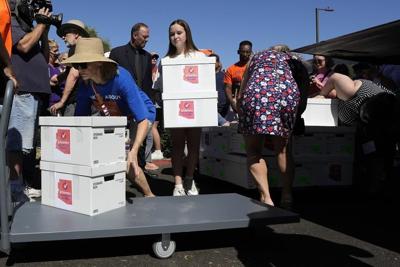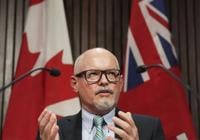PHOENIX (AP) — A judge on Friday rejected an effort by GOP lawmakers to use the term “unborn human being” to refer to a fetus in the pamphlet that Arizona voters would use to weigh a ballot measure that would expand abortion access in the state.
Maricopa County Superior Court Judge Christopher Whitten said the wording the state legislative council suggested is “packed with emotion and partisan meaning” and asked for what he called more “neutral” language. The measure aims to expand abortion access from 15 weeks to 24 weeks, the point at which a fetus can survive outside the womb.
It would allow exemptions to save the woman’s life or to protect her physical or mental health. It would also prevent the state from adopting or enforcing laws that would forbid access to the procedure.
Arizona House Speaker Ben Toma, a co-chair of the legislative council, said the group will appeal the court’s decision to the state Supreme Court.
“The ruling is just plain wrong and clearly partisan,” said Toma, a Republican.
Aaron Thacker, communications director for Arizona Secretary of State Adrian Fontes, noted that the final decision on the ballot itself remains in the air.
“There’s still a lot of scenarios at play," he said. "Even after the secretary certifies the signatures, the courts have to decide if counties can put it on the ballot or not."
Arizona for Abortion Access, the organization leading the ballot measure campaign, sued the council earlier this month over the suggested language and advocated for the term “fetus,” which the legislative council rejected.
Attorney General Kris Mayes wrote in a “friend of the court” document that “fetus" and “pregnancy” are both neutral terms that the council could adopt.
“It’s incredibly important to us that Arizona voters get to learn more about and weigh our measure in objective and accurate terminology,” said Dawn Penich, communications director for the abortion access group.
Democrats have focused on abortion rights in their campaigns in this year’s elections. Organizers in five other states have also proposed similar measures that would codify abortion access in their state constitutions: Colorado, Florida, Maryland, Nevada and South Dakota.
Arizona organizers submitted more than double the amount of signatures needed for the measure to appear on the ballot.








































